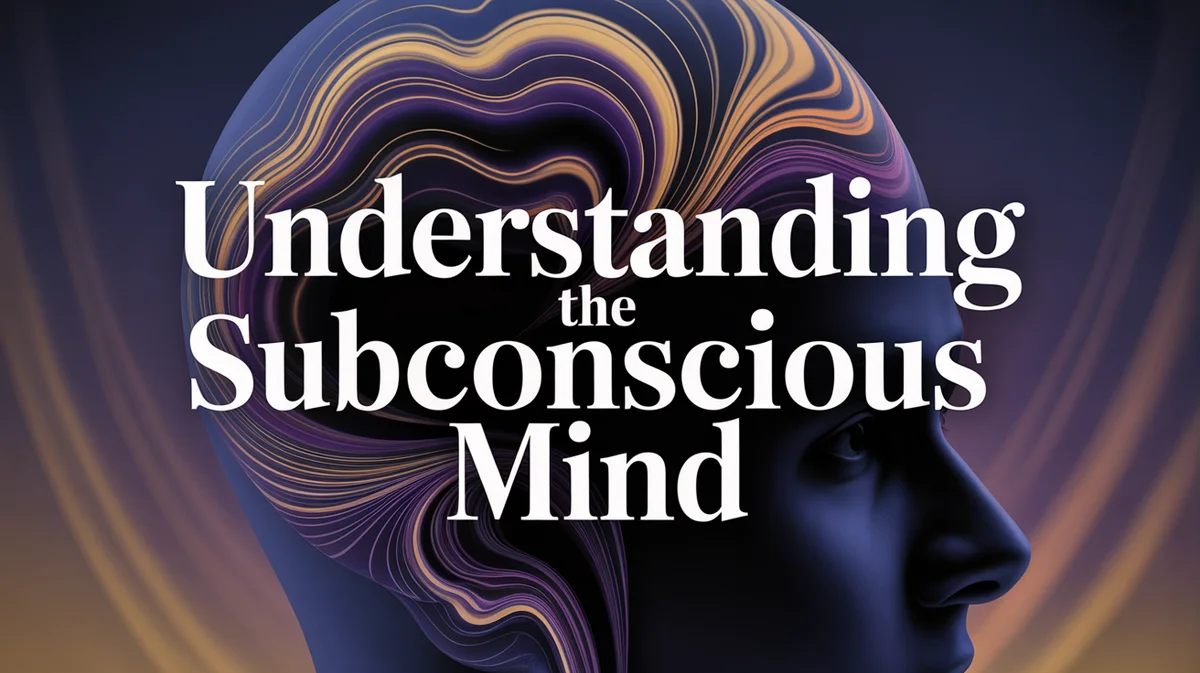Understanding The Subconscious Mind

Understanding the Subconscious Mind
The subconscious mind is a fascinating and often misunderstood component of our psyche. Unlike the conscious mind that communicates through language, the subconscious mind operates with images, sounds, tastes, sensations, and emotions.
For example, when you think of the word "lemon," you might visualize a lemon, possibly even sensing its taste or aroma. This vivid sensory experience, triggered effortlessly, is a manifestation of your subconscious.
Names forgotten temporarily yet remembered suddenly when prompted? That's the subconscious at play. The name was never lost; it was tucked away in the subconscious. The face of the person is recalled with clarity, but the name, a language construct, may evade us temporarily.
Interestingly, the subconscious neither reasons nor judges. It does not discern between past, present, or future. For the subconscious, everything is in the present. Traumas, even from two decades ago, can lurk in the subconscious, feeling as immediate as the day they occurred. As these unresolved conflicts accumulate, they might make us feel emotionally and physically burdened. Releasing them might bring a sensation of lightness.
Chronic subconscious traumas or conflicts are often linked with mental and/or physical illness. Every emotion we feel has a corresponding physical response in our brain and body. Traumas are sometimes visible as abnormalities in brain CT scans. They impact specific regions of the brain and body consistently across individuals.
The Purpose of Life is to Experience Joy
Modern psychiatry, at times, fails to consider the concept of a “cure.” Its focus is often on managing symptoms rather than addressing root causes. For example, repetitive events, like a train passing by a house, might initially be disturbing. Yet, over time, they fade into the background of our daily experiences. This ability to 'tune out' persistent stimuli is a survival mechanism. However, strong emotions associated with negative experiences don't just disappear; they go dormant, affecting us subtly and consistently.
Understanding the subconscious illuminates our reactions. If a similar triggering event occurs, dormant traumas may resurface, causing anger, guilt, or depression.
The subconscious has an astonishing memory, retaining a complete record of our experiences, even memories from prenatal stages. It's essential to understand that emotions drive thoughts. Any thought rooted in negative emotions impacts us detrimentally.
Conscious thoughts, in isolation, lack power. It's the emotions behind them that hold potency. A negative experience, once internalized, becomes a subconscious belief, always weakening our spirit. The subconscious mind doesn't differentiate between self and others or between reality and imagination. Holding onto negative feelings, like grudges, harms us more than the subjects of our resentment.
We can overcome these negative imprints. Therapies like Energy Therapy offer tools to help us understand and heal our subconscious mind. Using sheer force or will to address issues exacerbates them. Letting go is the key to natural healing.
The Purpose of Life and How Understanding the Subconscious Mind Can Set Us Free
Our lives comprise two fundamental things: thoughts and emotions. Negative events occur, but our reactions are composed of thoughts and emotions. Understanding the subconscious mind can guide us towards true joy and happiness. The essence of life is to experience joy.